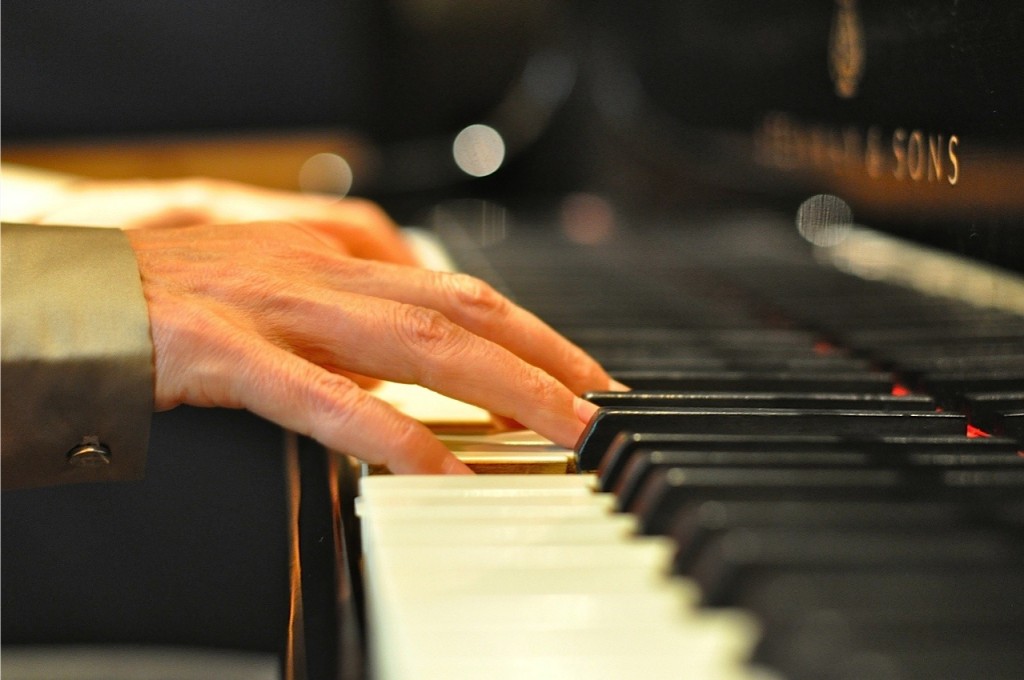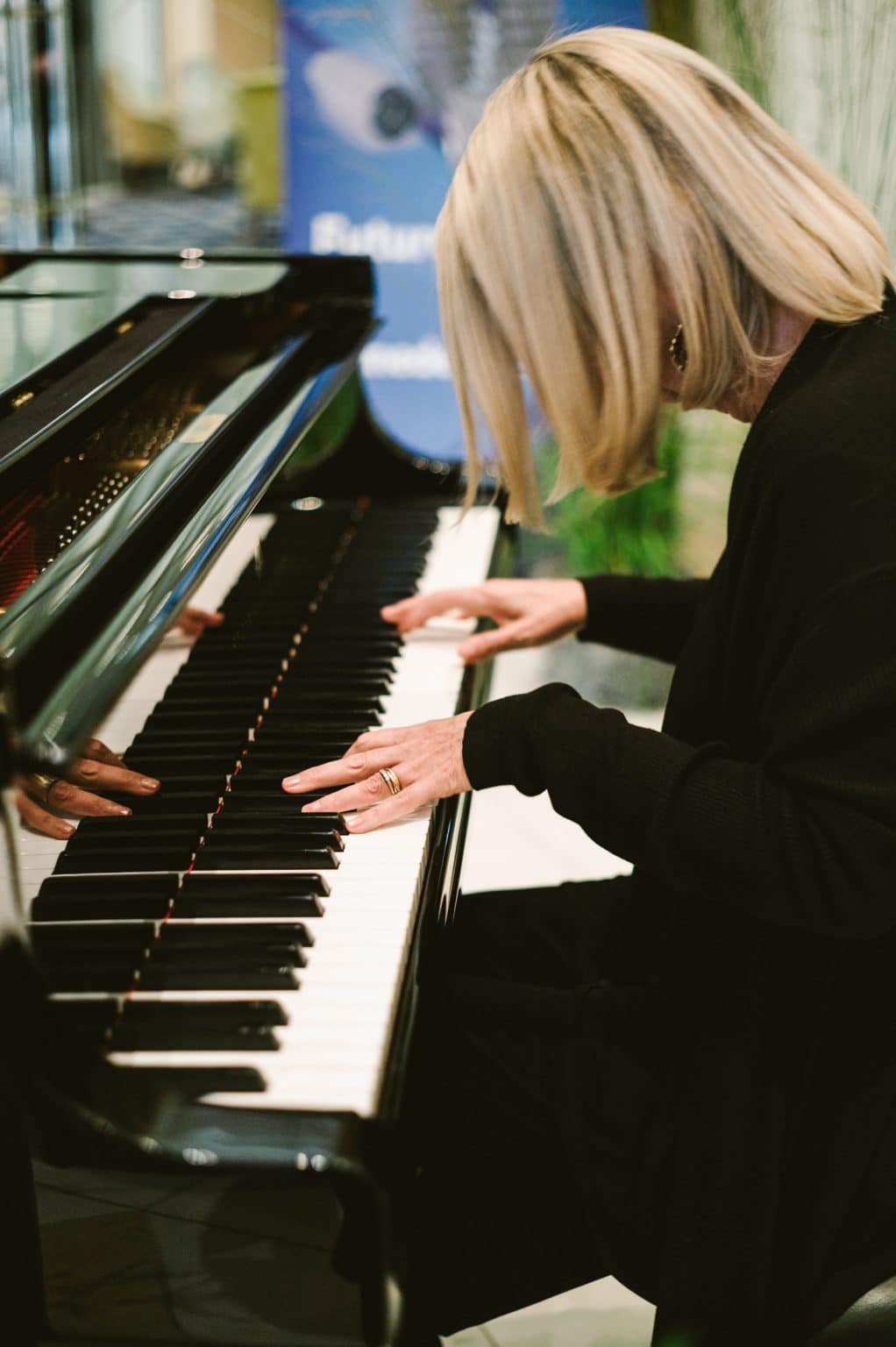 Every September the urge strikes me like a ton of books. I want new binders, new pencils, and a new outfit with matching shoes.
Every September the urge strikes me like a ton of books. I want new binders, new pencils, and a new outfit with matching shoes.
In the seventh grade, I leaped over the puberty moat and landed in Miss Padjune’s class at Prospect Junior High. Nothing so dramatic about that, but I was the only kid from Chatham Village attending a Pittsburgh public junior high school. Chatham Village, a stylish and manicured neighborhood encircled by a much larger, run-down community, had gained a reputation for being a place where rich kids lived. So not true. I mean, my dad was a jazz drummer, not exactly a profession conducive to luxury automobiles and fancy vacations. We did have matching towels and decent haircuts, and we ate dinner together most nights before Dad went out to play a gig (or two). Rent in Chatham Village was cheap. Technically, my family struggled just like everyone else’s family, but we somehow managed to look upscale while counting our pennies.
Kids from outside the Village perceived us as snobby, stuck-up, conceited—words I would hear often while slogging through my teen years. I played tennis (free courts), I played the piano, my parents encouraged me to do well academically. Prospect Junior High School in the early seventies offered a safe haven for pot smokers and jocks. They didn’t send a welcome wagon for kids like me. It was common knowledge that the Village offered its residents a semi-annual Gin and Tonic Tennis Tournament, a private day camp that taught kids how to weave baskets and do modern dance, and an annual Fourth of July parade that featured my family marching through a courtyard while wearing three-cornered hats and playing “When Johnny Comes Marching Home.”
If you were a kid from Chatham Village entering Prospect Junior High in 1970, you were destined for the losing side of the popularity contest; destined to end up in Mr. Ging’s office with your mother and a sneering badass girl named Kathy who kept threatening to rip your hair out; destined to be laughed at because you were good at synchronized swimming and liked to play Bach inventions.
We weren’t rich, we were barely hitting middle class, but we were masters of disguise, living stylish lives on shoestring budgets—an attribute that would come in handy in my adult years.
I didn’t know any of this on my first day of seventh grade. I thought all twelve-year old girls showed up for class in a plaid kilt with matching forest-green tights and suede loafers with tassels. Talbot’s Jr, the “kick me now” back to school outfit. Who wears green suede loafers to junior high school? Village girls, that’s who. My little friends from the Village had tottered off to private schools, Catholic schools, schools where plaited hair and knee socks were acceptable. There I stood, friendless in a room full of hipper, cooler kids. I was terrified. Miss Padjune put all of us in a circle and asked us to introduce ourselves. Nervous, but still convinced my outfit was killing, I proudly said, “Robin Rawsthorne.”
Everyone laughed. That’s when I first thought the shoes might have been a bad idea.
I turned to face the boy standing next to me in the circle. He seemed neither stoned nor particularly buff. He was tall and skinny, just like me. “I am Roy Reeves,” he said.
And then, for some mysterious reason, he threw up all over my new shoes. Roy Reeves had the heaves.
Maybe he was terrified, too.
If there is anything worse than going through the first day of junior high wearing green suede loafers, it’s wearing green suede loafers covered in vomit. I scrubbed and scrubbed in the girls’ restroom, but Roy Reeves had left his mark on those tassels and nothing, nothing would remove the stain. Or the stench.
I learned a big lesson that day: It’s better to be subtle when entering a new environment. Save the fashion statement and the look at me now attitude for later on, once you have your feet (and your tassels) wet. Sneak in. Stay in the back row.
And if anyone looks like they might barf, run.
Good advice for musicians, actually. I’m starting a new piano job this month. I love that it’s happening in September, when all of my back to school instincts kick-box into high gear. I tend to keep hotel jobs for long periods of time. The last one, at Schloss Lerbach, lasted fourteen years—a lifetime for a freelance musician. It seemed like one of those gigs that would go forever. But the castle closed. Just like that. Poof! If a pianist plays in a castle and there’s no one there to hear? Never mind. Chapter closed.
I began talking to the fine people at the Excelsior Hotel Ernst a few weeks after Lerbach shut the castle doors. It quickly became clear that the Excelsior—one of those grand European hotels you see in artsy films about eccentric travelers—was a good match for the music I play. Hotel management asked me to select a Steinway for them. I found a 1940 Model “A” with a unique history, the story of which I’ll reveal as soon as I collect enough facts to spin them into fiction.
I’ll be performing every weekend to accompany a very proper British Afternoon Tea. Yes, I’ll be an American pianist playing for a British Tea in a German hotel—a multi-culti mishmash that I’m hoping will work for everyone involved. The hotel is warm, inviting, and snooty enough to make each guest feel stylish. Blues and golds and fine, fine china. Warm scones. Art that looks old and important. Macaroons that arrive daily from Paris. Staff—some of them there for decades—groomed in the art of soothing jittery nerves and inferiority complexes. A place where epaulettes and clotted cream rule the day. I’ve discovered over the years that elegance encourages good manners. A proper tea is civilized, sort of like a set of matching towels or a good haircut.
Nine months have passed since I last worked a steady hotel gig. I’ve played some nice concerts and a few weddings, but, this time, leaping over the back to school moat involves more than a wardrobe choice. I play without notes in front of me—a combination of memory and improvisation—and recalling what I know can be challenging. I remember how to play the pieces; I just don’t remember that I know them. Lists. I am making lists. I am making lists about the lists.
I’ve also embarked on a physical fitness program destined to keep me strong for each of my three-hour piano marathons. Gym, swim, play, wine, sleep—the back to school agenda for older pianists.
I confess to having a new outfit. With matching shoes. No green, lots of black. Perfect for the bruise-colored German palette. I’ll blend in. I’m still thinking about tassels. Should I, or shouldn’t I? I can’t say the word tassel without thinking of poor little Roy Reeves. Maybe I’ll pass.
I shall show up on my first day of work, try to avoid anyone who looks queasy, and joyously embrace the chance to start over. I’m fifty-seven—what a blessing to begin again, at my age.
I’ve purchased a new binder, in case I need to take notes. First entry: Lucky me.
***
Robin Meloy Goldsby is a Steinway Artist. She is also the author of Piano Girl; Waltz of the Asparagus People: The Further Adventures of Piano Girl; and Rhythm: A Novel.
Coming soon: Manhattan Road Trip, a collection of short stories about (what else?) musicians.
Sign up here to receive Robin’s monthly newsletter. A new essay every month!

